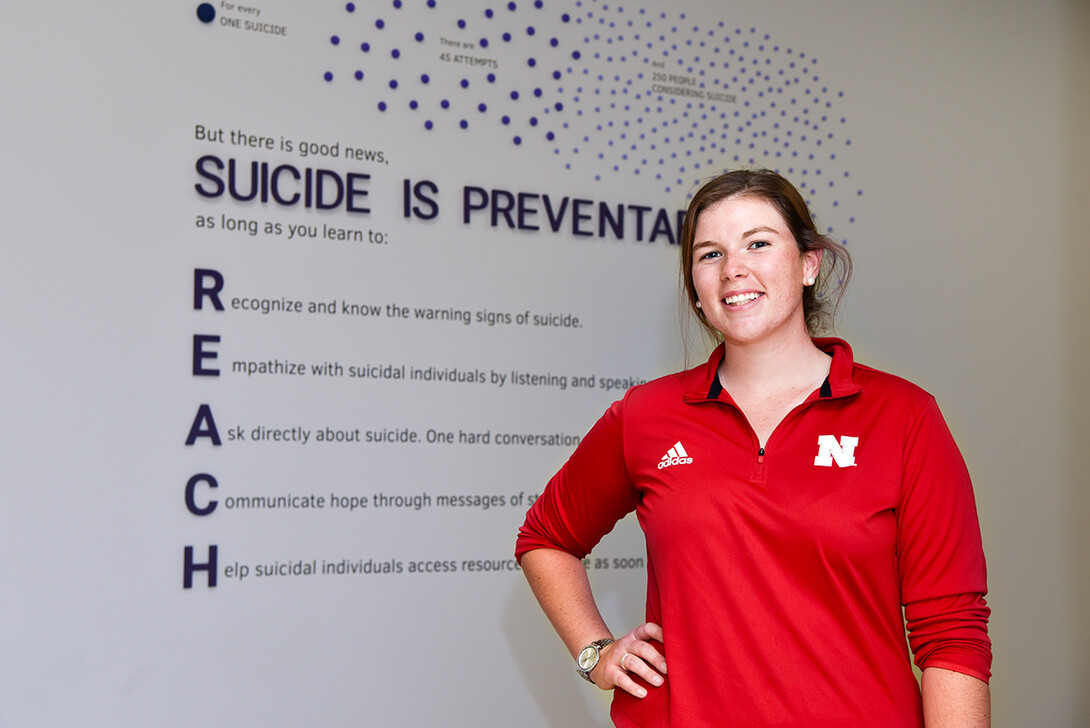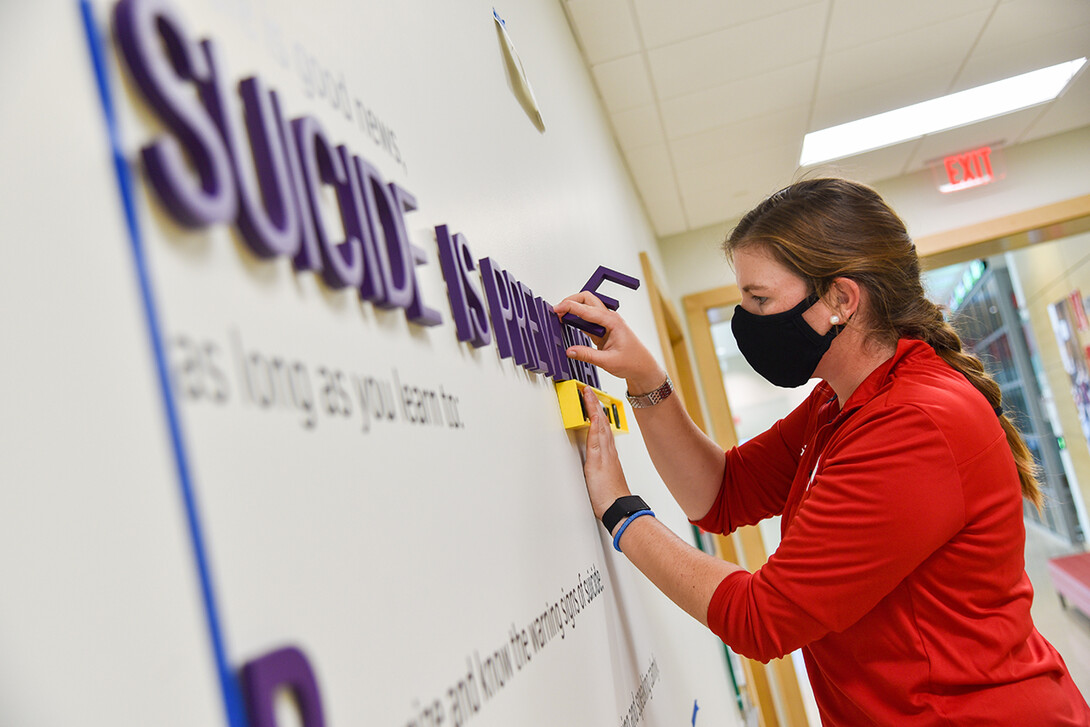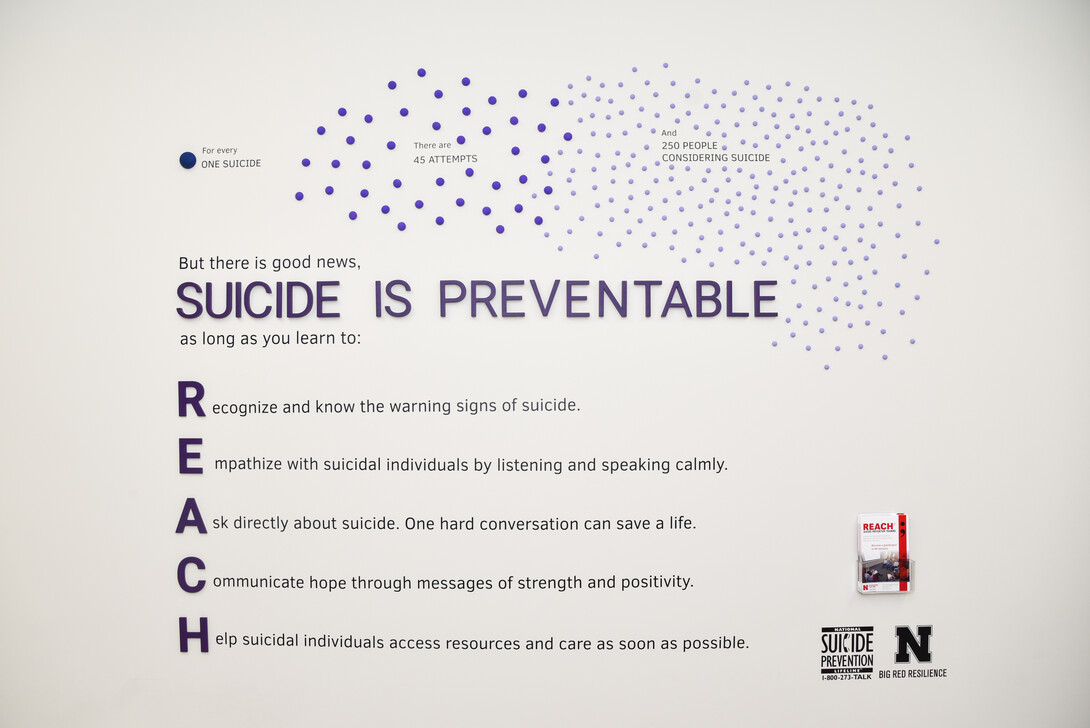
After working in the Big Red Resilience and Well-Being office, Kate Smith, senior graphic design major, learned that sometimes all it takes is one conversation to prevent a suicide and save a life. She applied her knowledge and artistic talents to create a display and spread the message across the University of Nebraska–Lincoln campus — starting at the College of Business.
“Having that statement of hope has always motivated me to do more to educate those around me in suicide prevention,” said Smith, who is from Detroit Lakes, Minnesota. “My hope is this display can be a call to action for college students to be more educated on prevention efforts.”
Smith underwent REACH training, which stands for Recognize the warning signs of suicide; Engage with empathy; Ask directly about suicide; Communicate hope; and Help suicidal individuals access care and treatment. The program teaches faculty, staff and students the risk factors, warning signs and how to intervene with potential suicidal situations.

“Since I became a REACH trainer, suicide prevention has become very important to me. In learning more about suicide, it truly is preventable if you have the courage to reach out,” she said.
The display originally served as Smith’s capstone project for her major, but she saw a broader purpose for it. She worked with Connie Boehm, director of student resilience for Big Red Resilience and Well-Being, to bring the display across campus.
“The display is important to help reduce the stigma around talking about suicide and getting help when you need it. It supports our goal of creating a culture of caring for one another at Nebraska. We hope it motivates more faculty, staff and students to get REACH trained and become gatekeepers,” Boehm said.
More than 30 College of Business faculty and staff received REACH training prior to the pandemic, with more training sessions planned. Tammy Beck, associate dean of graduate programs and executive education and associate professor of management, serves on a university-wide committee working to improve the community’s culture around and access to mental health and well-being. She found the display impactful and thought Howard L. Hawks Hall would be a great place to first showcase it.

“We’re excited to display Kate’s work here in the College of Business for all to see. The mental health and well-being of our students is of utmost importance to us, and we want them to feel empowered and supported in their journey to lead the future of business. Kate’s display helps remind everyone who walks through our building that help is available if needed and the simple act of reaching out to someone struggling, could save a life,” said Beck.
Placed on the first level of Hawks Hall, people who enter through the west entrance off 14th Street will see Smith’s project near the elevator across from HLH 111. In a prominent space, the display spreads awareness on this important topic.
“I am grateful for the College of Business’s excitement for this project. I truly hope it can help the well-being of their business students,” she said. “Whether it is my display, an in-person training or something else entirely, I just want the students of Nebraska to have every opportunity to learn more about mental health and suicide prevention.”
Smith believes that even one conversation can make all the difference in saving someone’s life.
“If even one person reaches out to someone they are worried about because of this display, it will be all worth it,” she said.
If you or someone you know are interested in learning more about Counseling and Psychological Services (CAPS), which provide students with free services, such as therapy sessions, please visit CAPS website or call 402-472-7450.
Learn more about or become a REACH trainer online.







